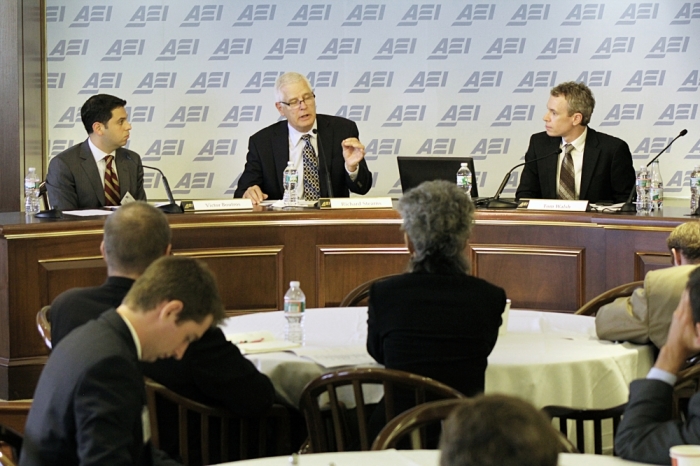World Vision Leader to Churches: Fixing Poverty Isn't Simple, Stop Trying to Fix It With 8th Grade Youth Groups

WASHINGTON — While some claim that fighting poverty "isn't rocket science," it actually is complicated, and more like rocket science than many imagine, according to Richard Sterns, president of World Vision.
"I have a saying that I use, and it goes 'when it comes to solving the problems of poverty it rocket science,'" Stearns said. "Unfortunately there are many many churches in America who think it's simple. 'We'll send the 8th grade youth group into the middle of the AIDS pandemic and we'll fix it.' Poverty is rocket science."
Stearns spoke about the role of the church when it comes to poverty at the 2014 AEI Evangelical Leadership Summit on Sept. 10. Sterns recognized that the church does do good things in the name of helping those who are less fortunate, but it could do more to change the worldview regarding poor people and help its effectiveness.
Stearns likened solving the problem of poverty to that of a jigsaw puzzle, saying "if you only have one piece you cannot solve it." He acknowledged that even though no one entity had all of the right answers, the Church is the best equipped for dealing with the problem.
The beginning of most of the issues the church has when combating poverty the right way is its worldview on tackling global issues, he argued. He said the church has three different world views: The Magic Kingdom, The Tragic Kingdom, and disparity.
"We in America have this Magic Kingdom view of the world," Stearns said. "And what it does is it insulates us from the pain of the world. It Insulates us from the very distant problems of ISIS and Syria and the war in Congo ... places that seem so far away that 98 percent of Americans would never go to those places."
The Tragic Kingdom is the world that people who work in the countries see everyday. Missionaries and volunteers who travel to those countries see the dire situations that the residents live in.
"This Is the world of poverty and vulnerability, and injustice exploitation." Sterns said. "I've been to communities around the world where 25 percent of the children are dead by their 5th birthday."
The third worldview is one of disparity. Sterns said there is a "disparity of justice, of economics, and of expectations."
Victor Boutros presented on the "Locust Effect" in which the perils of injustice in developing countries are like a swarm of locusts destroying crops and all the work that went into growing the crop. Boutros and author Gary A. Haugen penned the book The Locust Effect: Why The End Of Poverty Requires The End of Violence which gives the accounts of the poorest people across the world and how common violence such as rape, forced labor, illegal detention, land theft, and police abuse are the main deterrents to overcoming poverty.
"It seems that we're approaching a pivotal moment in history where if we do not decisively address the plague of everyday violence that swarms over the common poor, the poorest world will not be able to achieve their dreams," Boutros explained. "For you and I here in America, we are so used to breathing the oxygen that is law enforcement that is is hard to think what it is like for billions of poor people around the world who don't have a justice system that protects them."
Boutros then showed that even here in America, sometimes residents do not have a justice system that protects them. He recounted the story of young woman who was the victim of a violent assault by a man in a rural Oregon county, and played the 911 tape of an attack in progress. The 911 operator told the woman that due to budget cuts the police were only available on weekdays, and because it was the weekend there was no one that she could dispatch to the woman's home because there were no police in the area.
"Unfortunately I have to say that this man broke his way in and tragically choked and raped the young woman," Boutros said somberly. "We have to confront this stark reality. This is what happens when there is no law enforcement in your area. This is what happens to the worlds poorest."




























